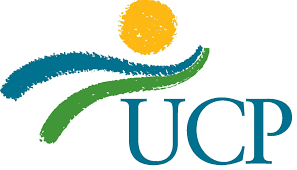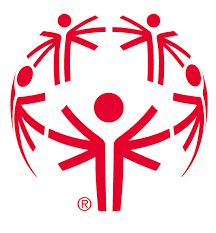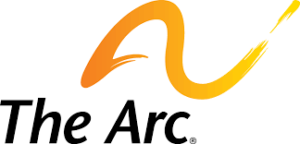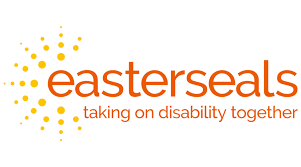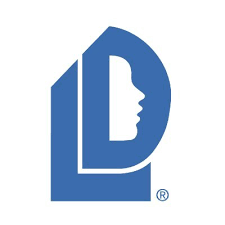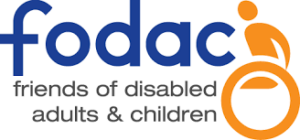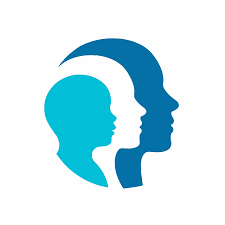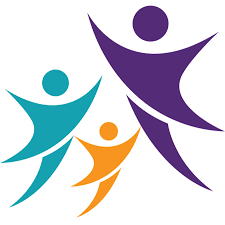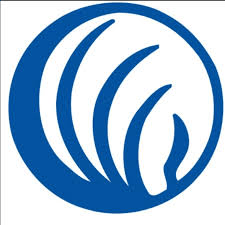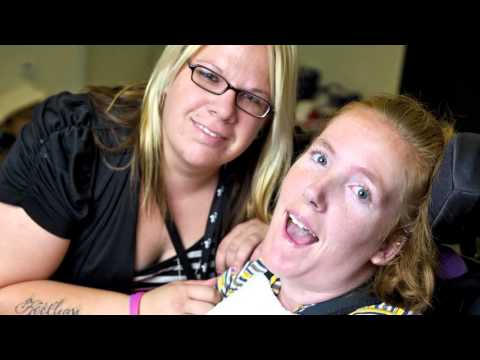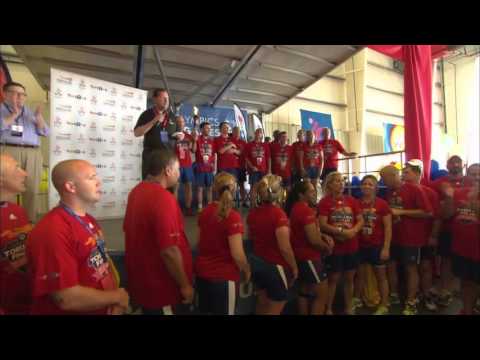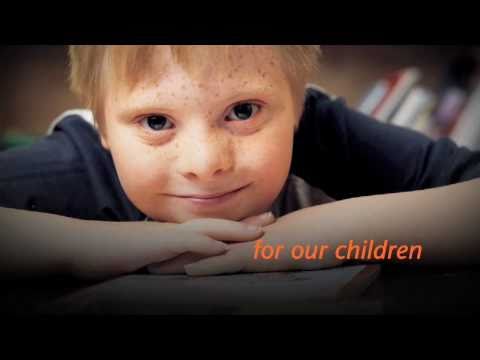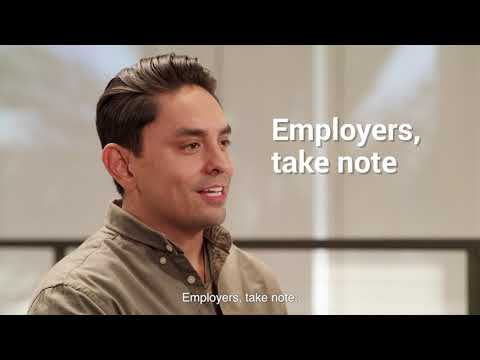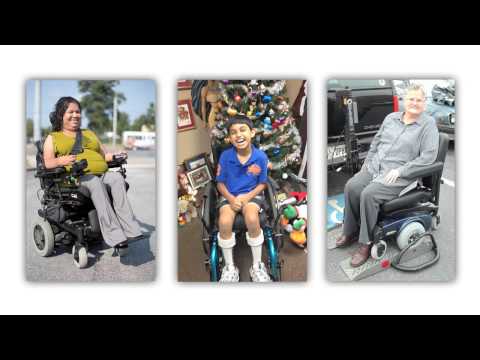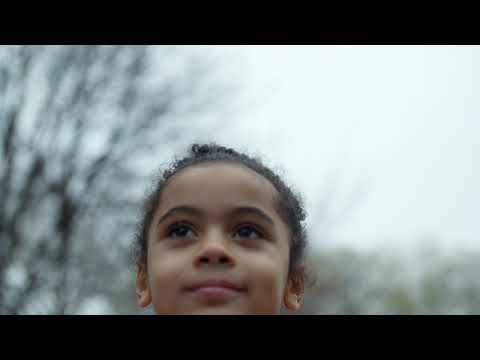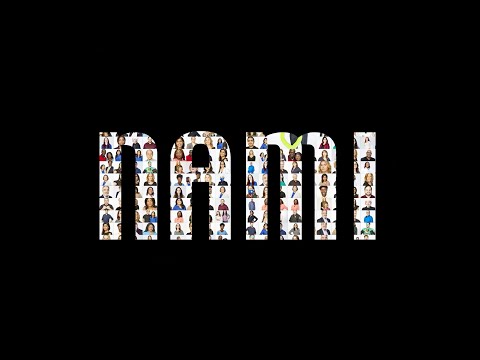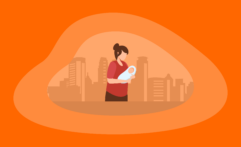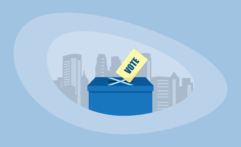9 Best Charities for Disabled Children (Complete 2024 List)
Impactful Ninja is reader-supported. When you buy through links on our site, we may earn an affiliate commission.
Learn more
Learn more
.
Hey fellow impactful ninja ? You may have noticed that Impactful Ninja is all about providing helpful information to make a positive impact on the world and society. And that we love to link back to where we found all the information for each of our posts. Most of these links are informational-based for you to check out their primary sources with one click. But some of these links are so-called "affiliate links" to products that we recommend. First and foremost, because we believe that they add value to you. For example, when we wrote a post about the environmental impact of long showers, we came across an EPA recommendation to use WaterSense showerheads. So we linked to where you can find them. Or, for many of our posts, we also link to our favorite books on that topic so that you can get a much more holistic overview than one single blog post could provide. And when there is an affiliate program for these products, we sign up for it. For example, as Amazon Associates, we earn from qualifying purchases. First, and most importantly, we still only recommend products that we believe add value for you. When you buy something through one of our affiliate links, we may earn a small commission - but at no additional costs to you. And when you buy something through a link that is not an affiliate link, we won’t receive any commission but we’ll still be happy to have helped you. When we find products that we believe add value to you and the seller has an affiliate program, we sign up for it. When you buy something through one of our affiliate links, we may earn a small commission (at no extra costs to you). And at this point in time, all money is reinvested in sharing the most helpful content with you. This includes all operating costs for running this site and the content creation itself. You may have noticed by the way Impactful Ninja is operated that money is not the driving factor behind it. It is a passion project of mine and I love to share helpful information with you to make a positive impact on the world and society. However, it's a project in that I invest a lot of time and also quite some money. Eventually, my dream is to one day turn this passion project into my full-time job and provide even more helpful information. But that's still a long time to go. Stay impactful,Affiliate Disclosure
Why do we add these product links?
What do these affiliate links mean for you?
What do these affiliate links mean for us?
What does this mean for me personally?
Worldwide, around 1 in 10 children live with some sort of disability. These children can face a myriad of difficulties; for example, they are less likely to receive early childhood education and more likely to feel discriminated against compared to children without a disability. Luckily, charities around the world are working to help disabled children and their families to find the support they need. So, we had to ask: what are the best charities for disabled children?
The best charities for disabled children are United Cerebral Palsy and the Special Olympics. Charities such as The Arc and Easterseals ensure that children with disabilities have access to quality education and support services.
Whether you want to help a family outfit their vehicle to accommodate a wheelchair, ensure disabled children have access to vital support services, or fund research into mental disabilities impacting children, there is a charity for you. Keep reading to learn more about what the best charities for disabled children are all about, how they work, and your best way to contribute.
Here’s What All the Best Charities for Disabled Children Have in Common
The charities on this list were chosen based on their mission, impact and transparency ratings, and achievements.
They operate primarily throughout the US and Canada, though some reach children with disabilities internationally.
Many of these charities serve children with a variety of disabilities, from physical to intellectual, while others focus on one specific disability.
Some charities focus on advocacy, education, and awareness to improve the lives of disabled children. Whereas, others provide individualized support services such as medical equipment and direct care.
Yet, they all share a common goal; to enhance the lives of children with disabilities.
These Are the 9 Best Charities That Support Disabled Children in 2024
Below are our favorite charities that support Disabled Children (you can click on their link to directly jump to their section in this article):
Best Charities That Support Disabled Children
(At the end of this article we’ll also share our six-step approach on how you can select the best charity to support.)
United Cerebral Palsy: Independence and Productivity for All
🔎
Their transparency & ratings:
Charity Navigator gives United Cerebral Palsy a 100% rating for Finance and Accountability. GuideStar gives the charity the Gold Seal of Transparency.
“Life without limits for people with disabilities.”
United Cerebral Palsy
⚒️
What they do:
United Cerebral Palsy utilizes their network of affiliates throughout the US to provide services and support to people with disabilities and their families. For example, UCP of Central Florida offers Family Support Services to help families navigate the challenges that come with raising a child with a disability. Furthermore, UCP of Long Island provides Early Intervention Services to support young children in areas like cognitive, social, and adaptive development. Furthermore, the charity also promotes inclusivity through public advocacy and disability etiquette education.
🚀
What they’ve achieved:
Since their founding, United Cerebral Palsy has remained committed to helping disabled adults and children through direct services, research, and advocacy. Today, the charity’s network includes 58 local affiliates throughout the US and Canada, helping around 155,000 people with disabilities annually. For example, in 2020, their Bellow’s Fund provided $654,988 to individuals with disabilities, including children, to aid in procuring assistive technology equipment.
✨
Ways to contribute:
You can donate to United Cerebral Palsy on a national or regional affiliate level. You can also volunteer with your local affiliate of the United Cerebral Palsy’s network.
Special Olympics: Empowerment Through Athleticism
Today, the organization is a global movement, highlighting ability over disability and empowering special athletes of all ages.
🔎
Their transparency & ratings:
Charity Navigator gives the Special Olympics a 4-star rating. GuideStar gives the charity the Silver Seal of Transparency.
“Changing the world through sport.”
Special Olympics
⚒️
What they do:
The Special Olympics offers a variety of sports-related programs that enhance the lives of children with disabilities by encouraging health and fitness, promoting inclusion, and strengthening communities. For example, their Young Athletes program provides structured play opportunities that introduce young children with and without disabilities to basic athletic concepts like running and kicking. Furthermore, their Healthy Athletes initiative offers free health screenings and education to Special Olympics athletes in a fun and welcoming environment. And, athletes with disabilities of all ages can participate in their competitive sports events, which helps them build skills like confidence, sportsmanship, and teamwork.
🚀
What they’ve achieved:
Globally, the Special Olympics hosts more than 115,000 competitions annually, reaching more than 6.7 million athletes, including children with disabilities. Furthermore, their Healthy Athletes initiative has performed more than 2 million screenings, addressing the physical needs of athletes that might otherwise go untreated. The initiative has also trained close to 300,000 health professionals and students to treat children and adults with disabilities.
✨
Ways to contribute:
You can make monetary donations to The Special Olympics via their website. You can also get directly involved by volunteering as a coach, event staff, official or unified partner in your local community.
The Arc: Respect, Dignity, and Inclusion
🔎
Their transparency & ratings:
Charity Navigator gives The Arc a 100% rating for finance and accountability. GuideStar gives the charity a Gold Seal of Transparency.
“We fight every day so no person with a disability gets left behind.”
The Arc
⚒️
What they do:
The Arc works toward the full inclusion of people with disabilities through their advocacy and education initiatives. For example, their Arc@School initiative provides training and resources to help families and stakeholders navigate the special education system. Moreover, their Wings for All program eases travel challenges by giving children with disabilities and their families the opportunity to role-play common travel scenarios, and also educates aviation professionals on how to interact with and accommodate families with special needs. Furthermore, they work closely with lawmakers to advocate for the best interest of the disabled community, such as ensuring that special education programs get the funding they legally deserve.
🚀
What they’ve achieved:
The Arc was the first organization to put money into research on intellectual and developmental disabilities. They were also instrumental in enacting social support programs for children and adults with disabilities such as Medicare, Medicaid, and Supplemental Security Income. For example, in 2021, The Arc’s advocacy efforts led to $12.7 billion in new federal funding for home and community-based services for people with disabilities. Today, The Arc has nearly 600 chapters across 47 US states plus the District of Columbia.
✨
Ways to contribute:
You can donate directly to The Arc through their website. You can also support the charity by creating your own fundraiser, donating physical items, or giving stock. In addition, you can participate in their advocacy efforts by voicing your support to Congress.
Easterseals: Lifespan Support for Individuals With Disabilities
🔎
Their transparency & ratings:
Charity Navigator gives Easterseals a score of 85 out of 100 for finance and accountability. The charity also holds the GuideStar Silver Seal of Transparency.
“All abilities. Limitless Possibilities.”
Easterseals
⚒️
What they do:
Easterseals provides services and resources to help children and adults with disabilities and their families to lead comfortable and fulfilling lives. For example, their Early Intervention programs support children with a range of disabilities through services such as a screening tool to identify developmental delays and early childhood education. Furthermore, they provide a variety of interventions and therapies to children and adults with autism, including the development of communication skills to help individuals integrate successfully into society. Moreover, they are the largest provider of recreation and camping services for people with disabilities in the US.
🚀
What they’ve achieved:
Each year, Easterseals helps more than 1.5 million people with disabilities, including children. For example, since 2003, their annual fundraiser Walk With Me, has generated nearly $41 million across 615 events and 230,000 participants. Easterseals was also a leading advocate for the passing of the Americans with Disabilities Act, which prohibits discrimination based on a disability.
✨
Ways to contribute:
You can donate to Easterseals via their website. You can also contribute by registering to participate in a Walk With Me event, or by volunteering with an Easterseals near you.
National Center for Learning Disabilities: Research, Advocacy, Action
🔎
Their transparency & ratings:
Charity Navigator gives the National Center for Learning Disabilities a 4-star rating. GuideStar gives the charity the Gold Seal of Transparency.
“Improving the lives of the 1 in 5”
National Center for Learning Disabilities
⚒️
What they do:
The National Center for Learning Disabilities enhances the lives of individuals with learning disabilities through advocacy campaigns, funding research, and by providing scholarships and awards. For example, they are advocating for the urgent need for sustainable funding to ensure school children with disabilities have the tools they need to successfully gain reading literacy, and math skills. They also help young adults transition to life after high school by providing an online community of support and resources to connect them to educational and vocational services.
🚀
What they’ve achieved:
Since their founding, the National Center for Learning Disabilities has remained dedicated to improving the lives of children and adults with learning disabilities. For example, they developed the LD Checklist to help with the early recognition of learning disabilities. They also created a bank of online resources to help students navigate online learning. This was based on a survey they conducted of young adults with learning disabilities to better understand the impact of COVID-19 on their learning. Furthermore, in 2020, they spent $1,890,064 on efforts to advance their mission, including $417,388 toward young adult initiatives.
✨
Ways to contribute:
You can donate to the National Center for Learning Disabilities directly via their website. You can also become an advocate by sending a letter to Congress and educating yourself on the issues important to the learning disability community.
Friends of Disabled Adults and Children: Mobility for the Mobility-Impaired
🔎
Their transparency & ratings:
Charity Navigator gives Friends of Disabled Adults and Children a 4-star rating. GuideStar gives the charity the Gold Seal of Transparency.
“We are dedicated to keeping people moving!”
Friends of Disabled Adults and Children
⚒️
What they do:
Friends of Disabled Adults and Children recycles home medical equipment for people with disabilities, such as wheelchairs, scooters, and walkers. They then provide this refurbished equipment to those in need for little or no cost. They also provide refurbished computers to people with disabilities and help match families with contractors to make their homes and vehicles more accessible for disabled children.
🚀
What they’ve achieved:
Since their inception, Friends of Disabled Adults and Children has provided $250 million in medical equipment for people with disabilities internationally. They also keep 350 tons of recycled goods out of landfills annually through their recycling process. For example, they responded to COVID-19 relief efforts by providing nearly $4 million in related medical equipment to hospitals in their home state of Georgia. They also expanded their reach globally, donating to countries such as Venezuela, Kenya, Moldova, and Colombia.
✨
Ways to contribute:
You can donate to Friends of Disabled Adults and Children via their website. You can also support the charity by hosting an equipment drive, sponsoring an event, or volunteering.
Child Mind Institute: Mental Health in the Developing Brain
🔎
Their transparency & ratings:
Charity Navigator gives the Child Mind Institute a 3-star rating. GuideStar gives the charity a Platinum Seal of Transparency.
“Reaching struggling kids wherever they are.”
Child Mind Institute
⚒️
What they do:
The Child Mind Institute helps children with mental health and learning challenges through three initiative areas: care, education, and science. Their care initiative offers evaluation and treatment for a wide variety of mental health and learning concerns. Their education initiative includes the Family Resource Center and School and Community Programs, which provide families and communities with resources to promote children’s mental health. In addition, their science initiative drives research into causes of mental health and learning challenges in developing brains and adapts treatments accordingly.
🚀
What they’ve achieved:
Since their founding, the Child Mind Institute has treated more than 13,110 patients, over 75% of whom received services for free or at a reduced cost. Furthermore, their Healthy Brain Network has included more than 5,510 participants and the data has been cited in more than 1,289 research articles. In 2021 alone, more than 17 million people visited the organization’s website for free, evidence-based resources on children’s mental health.
✨
Ways to contribute:
You can donate to the Child Mind Institute via their website. You can also register to participate in an event by attending or becoming a sponsor.
STAR Institute: Sensory Health And Wellness
🔎
Their transparency & ratings:
The STAR Institute holds the Gold Seal of Transparency from GuideStar. According to their financial report, the charity spent 86.4% of its income on treatment and education programs, and 3.3% on fundraising.
“To impact quality of life by developing best practices for sensory health and wellness through treatment, education, and research.”
STAR Institute
⚒️
What they do:
The STAR Institute provides assessments and individualized treatments at their treatment center in Denver, for children suffering from Sensory Processing Disorder, autism, ADHD, and OCD among others. They also provide an extensive array of online courses for professionals working with children suffering from sensory disorders, and offer research mentorship programs for scientists working in the field of sensory integration. The charity also conducts their own research at their research facility.
🚀
What they’ve achieved:
To date, 12,750 families and professionals have attended educational events run by the STAR Institute. For example, in 2019, they supported and treated 742 clients at their treatment center and certified over 40 new professionals across the US, through their STAR Proficiency Certification program. Due to the expansion of their global reach, the charity now treats families from over 38 countries and 49 states.
✨
Ways to contribute:
You can donate directly to the STAR Institute through their website. Alternatively, you can volunteer for the charity or support the charity financially by buying or selling items through Ebay For Charity.
National Alliance on Mental Illness: Destigmatizing Mental Health
🔎
Their transparency & ratings:
Charity Navigator gives the National Alliance on Mental Illness a 4-star rating. GuideStar gives the charity a Platinum Seal of Transparency.
“Changing the mental health conversation, together.”
National Alliance on Mental Illness
⚒️
What they do:
The National Alliance on Mental Illness improves the lives of children with mental illness and their families through advocacy, education, support, and public awareness. For example, their education program features classes for people with mental illness as well as stakeholders such as family members, significant others, and providers. They also provide peer support to those seeking guidance and resources via their 24-hour HelpLine.
🚀
What they’ve achieved:
The National Alliance on Mental Illness helps those affected by mental illness through a network of over 600 affiliates and 49 state organizations across the US. For example, in 2021, they distributed $3.5 million in grants to advance the work of their network and support more adults and children with mental health disabilities. In the same year, their annual fundraiser, NAMIWalks Your Way, raised $13.1 million across 122 events with over 40,000 participants nationwide. The charity was also cited by federal legislators more often than any other mental health organization in 2021.
✨
Ways to contribute:
You can donate to the National Alliance on Mental Illness via their website. You can also contribute by registering to participate in NamiWalks Your Way, or by volunteering to work on the HelpLine.
How Can You Select the Best Charities to Support?
The charities on the list are, we deem, the best charities for disabled adults. However, you may have a particular charity you want to support. Let’s look at what you can do to ensure your contribution has the most significant impact.
- Check out the charity website. Charities that are worthy of your donations are transparent in their mission and their figures. Familiarise yourself with their history, mission, and values. Their website usually is the best place to start.
- Identify the charity’s mission. Without a goal, the charity is likely to fail. If the charity’s mission isn’t clear, it’s probably worth looking for a charity that does have a clear mission.
- Check if the charity has measurable goals. An effective charity has clear goals. You want to know your donation will help the charity reach its goals. But if it doesn’t have targets, it’s likely to fail or squander your gift. The charity should be able to account for its spending and supply evidence of the work they do.
- Assess the successes or goals the charity has achieved. You wouldn’t invest in a business if it kept missing its targets. In the same way, charities are like this too. If no one is assessing a charity’s progress in reaching its targets, the chances are they’re not making a substantial positive change.
- Check the charity’s financials and stats. Trustworthy organizations will publish financial statements and reports each year. Some might be exempt from having to do so, but they should be able to provide them to public members who are interested in donating.
- Locate sources who work with or benefit from the charity. Word of mouth and first-hand experience of a charity’s work lets you know the charity’s quality. If you’re able to do so, check out the charity for yourself or speak to someone familiar with it. This way, your donation will go to the right place.
How Can You Best Support These Charities?
After you’ve made your decision, it’s time for you to decide on how you’d like to help the charities you’ve chosen. Check how you can help – each charity runs specific programs that have unique aims. Find out what the aim of such programs is and whether they are right for you.
Here are a few ways you can help your chosen charity:
- Donate money. You can find donation pages on the website of most charities. Your donation can be a one-time payment, or you can set it to be deducted regularly at different intervals. You can mostly pay via credit card, but some charities also take PayPal or Bitcoin payments.
- Buy their official merchandise. Charities can also raise money by selling merchandise. So, you can support them by buying the mugs, shirts, caps, pens, pencils, and any other such items they may be selling. Ideally, you should buy as much as you can to share and spread the word about the charity’s activities.
- Engage in volunteer work. As you’ve seen from our descriptions above, some charities engage in a lot of local and grassroots programs. You can help by taking on and organizing the program in your local area.
- Help their fundraising efforts. You can spread the word about the charity in your workplace, school, church, etc., and hold creative fundraising drives on social media or offline within your small circles.
- Share their stories. Most charities have compelling stories that you can share with your audience to attract more people to the cause.
Final Thoughts
Now it is up to you to select the charity that resonates most with you. And whichever charity you end up choosing and contributing to, we are sure that they will immensely appreciate your support. Hopefully, the information within this article has made this selection process a bit easier for you to support charities dedicated to disabled adults – based on the causes that matter most to you.
Stay impactful,
PS: Finally, I want to leave you with a thought-provoking TED talk from Dan Pallotta, a leading philanthropic activist, and fundraiser, about what is wrong with the way we think about charities – and what we can do about it:
Sources
- United Cerebral Palsy: Home
- United Cerebral Palsy: Our History
- Charity Navigator: United Cerebral Palsy
- GuideStar: United Cerebral Palsy
- United Cerebral Palsy: Central Florida
- United Cerebral Palsy: Central Florida: Family Support Services
- United Cerebral Palsy: Long Island
- United Cerebral Palsy: Public Policy
- United Cerebral Palsy: Disability Etiquette
- United Cerebral Palsy: Web Archive
- United Cerebral Palsy: Bellow’s Fund
- United Cerebral Palsy: Donate
- United Cerebral Palsy: Donate to an Affiliate
- United Cerebral Palsy: Find Us
- Special Olympics: Home
- Special Olympics: About
- Charity Navigator: Special Olympics
- GuideStar: Special Olympics
- Special Olympics: Young Athletes
- Special Olympics: Healthy Athletes
- Special Olympics: Games and Competition
- Special Olympics: 2021 Impact Report
- Special Olympics: Donate
- Special Olympics: Volunteer
- The Arc: Home
- Charity Navigator: The Arc
- GuideStar: The Arc
- The Arc: The Arc@School.
- The Arc: Travel
- The Arc: Education Policy Advocacy
- The Arc: Our History
- The Arc: 2021 Annual Report
- The Arc: Donate
- The Arc: Fundraise
- The Arc: Donate Physical Items
- The Arc: Give Stock
- The Arc: Action Center
- Easterseals: Home
- Charity Navigator: Easterseals
- GuideStar: Easterseals
- Easterseals: Early Intervention
- Easterseals: Make the First Year Count
- Easterseals: Early Childhood Education
- Easterseals: Autism Services
- Easterseals: Camping and Recreation
- Easterseals: 2019 Snapshot
- Easterseals: About Walk With Me
- Easterseals: History
- National Center for Learning Disabilities: Homepage
- National Center for Learning Disabilities: About Us
- Charity Navigator: National Center for Learning Disabilities
- GuideStar: National Center for Learning Disabilities
- National Center for Learning Disabilities: Advocacy
- National Center for Learning Disabilities: Scholarships
- National Center for Learning Disabilities: Donate
- National Center for Learning Disabilities: Understand the Issues
- Friends of Disabled Adults and Children: Home
- Charity Navigator: Friends of Disabled Adults and Children
- GuideStar: Friends of Disabled Adults and Children
- Friends of Disabled Adults and Children: Medical Equipment
- Friends of Disabled Adults and Children: Other Resources
- Friends of Disabled Adults and Children: Vehicle Lifts
- Friends of Disabled Adults and Children: 2021 Annual Report
- Friends of Disabled Adults and Children: Donate
- Friends of Disabled Adults and Children: Host an Equipment Drive
- Friends of Disabled Adults and Children: Sponsor an Event
- Friends of Disabled Adults and Children: Volunteer
- The Child Mind Institute: About Us
- Charity Navigator: Child Mind Institute
- GuideStar: Child Mind Institute
- The Child Mind Institute: Care
- The Child Mind Institute: Education
- The Child Mind Institute: Resources
- The Child Mind Institute: School and Community
- The Child Mind Institute: The Center for the Developing Brain
- The Child Mind Institute: Healthy Brain Network
- The Child Mind Institute: Autism Center
- The Child Mind Institute: Our Impact
- The Child Mind Institute: 2021 Annual Report
- The Child Mind Institute: Donate
- The Child Mind Institute: Sponsorship
- STAR Institute: Homepage
- GuideStar: STAR Institute
- STAR Institute: 2019 Annual Report
- STAR Institute: Treatment
- STAR Institute: Online Learning
- STAR Institute: Research Mentorship
- STAR Institute: Sensory Health
- STAR Institute: Donations
- STAR Institute: Volunteer
- National Alliance on Mental Illness: Who We Are
- Charity Navigator: National Alliance on Mental Illness
- GuideStar: National Alliance on Mental Illness
- National Alliance on Mental Illness: Peer-to-Peer Education
- National Alliance on Mental Illness: Family Education
- National Alliance on Mental Illness: Provider Education
- National Alliance on Mental Illness: HelpLine
- National Alliance on Mental Illness: 2021 Annual Report
- National Alliance on Mental Illness: NAMIWalks Your Way
- National Alliance on Mental Illness: Donate
- National Alliance on Mental Illness: Get Involved
- National Alliance on Mental Illness: Volunteer Opportunities
